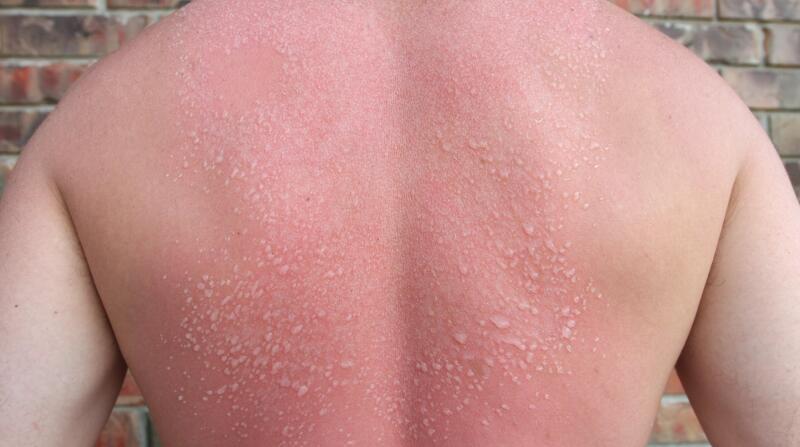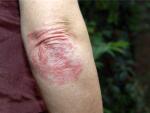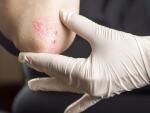Determining Psoriasis Severity

Medically Reviewed By William C. Lloyd III, MD, FACS
Written By Katie Lambert on June 15, 2019
-
 There are different types of psoriasis.In the United States alone, about 7.5 million people have psoriasis. The most common type, which affects about 80% of people with the condition, is plaque psoriasis. Like rheumatoid arthritis and multiple sclerosis, psoriasis is an autoimmune disease that isn't well-understood.
There are different types of psoriasis.In the United States alone, about 7.5 million people have psoriasis. The most common type, which affects about 80% of people with the condition, is plaque psoriasis. Like rheumatoid arthritis and multiple sclerosis, psoriasis is an autoimmune disease that isn't well-understood. -
 Genetics may have something to do with the type you have.While the cause may be a mystery, researchers suspect that there is a genetic component and they know what triggers flare-ups. Stress, injuries to the skin, such as sunburn, and certain medications, such as lithium, propranolol (a blood pressure drug) and drugs used to fight malaria can all trigger psoriasis activity.
Genetics may have something to do with the type you have.While the cause may be a mystery, researchers suspect that there is a genetic component and they know what triggers flare-ups. Stress, injuries to the skin, such as sunburn, and certain medications, such as lithium, propranolol (a blood pressure drug) and drugs used to fight malaria can all trigger psoriasis activity. -
-
 Your case is unique.Psoriasis isn't the same for every person who has it. Dermatologists generally classify a person's psoriasis as mild, moderate or severe. There are two ways to grade the severity of your psoriasis. One way is to determine how much of the body is affected.
Your case is unique.Psoriasis isn't the same for every person who has it. Dermatologists generally classify a person's psoriasis as mild, moderate or severe. There are two ways to grade the severity of your psoriasis. One way is to determine how much of the body is affected. -
 Take measurements.If the palm of the hand equals roughly 1% of the body, then a mild case of psoriasis is defined as one to two palm-sized patches, or 1 to 2% of the body covered. Moderate cases are 3% and above, and severe cases are 10% or above.
Take measurements.If the palm of the hand equals roughly 1% of the body, then a mild case of psoriasis is defined as one to two palm-sized patches, or 1 to 2% of the body covered. Moderate cases are 3% and above, and severe cases are 10% or above. -
 Deal with the everyday.Another way to determine the severity of psoriasis is to consider how much it interferes with your quality of life. For example, if you have only one palm-sized patch of psoriasis, but it's in a highly visible place and interferes with your work or personal relationships, your case could be classified as moderate to severe.
Deal with the everyday.Another way to determine the severity of psoriasis is to consider how much it interferes with your quality of life. For example, if you have only one palm-sized patch of psoriasis, but it's in a highly visible place and interferes with your work or personal relationships, your case could be classified as moderate to severe. -
 Consider the emotional toll of psoriasis,The emotional impact of psoriasis can also be severe. According to a published brief from the National Psoriasis Foundation, people with psoriasis are twice as likely as someone in the general population to have suicidal thoughts. Psoriasis also puts people at higher risk of depression and anxiety.
Consider the emotional toll of psoriasis,The emotional impact of psoriasis can also be severe. According to a published brief from the National Psoriasis Foundation, people with psoriasis are twice as likely as someone in the general population to have suicidal thoughts. Psoriasis also puts people at higher risk of depression and anxiety. -
-
 Find a dermatologist who can classify your psoriasis.For appropriate medical care, it's important to find a dermatologist who is experienced in treating psoriasis and up-to-date on treatment advances. While topical treatments may work for mild cases of psoriasis, they're generally not enough for people whose psoriasis is classified as moderate to severe.
Find a dermatologist who can classify your psoriasis.For appropriate medical care, it's important to find a dermatologist who is experienced in treating psoriasis and up-to-date on treatment advances. While topical treatments may work for mild cases of psoriasis, they're generally not enough for people whose psoriasis is classified as moderate to severe. -
 Is it time to switch treatments?If your psoriasis symptoms are not getting better and are interfering with your life, talk with your dermatologist about other treatments, such as phototherapy. A new class of drugs known as biologics has shown great promise in treating moderate to severe plaque psoriasis.
Is it time to switch treatments?If your psoriasis symptoms are not getting better and are interfering with your life, talk with your dermatologist about other treatments, such as phototherapy. A new class of drugs known as biologics has shown great promise in treating moderate to severe plaque psoriasis. -
 Consider combination therapy for tougher cases.Biologics are often combined with other treatments for the best results. Biologics are expensive and can cause major side effects, such as serious infections and blood conditions. For some people, however, they improve symptoms greatly. Everyone responds to drugs differently, including biologics, so work with your doctor until you find the right treatment plan.
Consider combination therapy for tougher cases.Biologics are often combined with other treatments for the best results. Biologics are expensive and can cause major side effects, such as serious infections and blood conditions. For some people, however, they improve symptoms greatly. Everyone responds to drugs differently, including biologics, so work with your doctor until you find the right treatment plan.
Determining Psoriasis Severity





































